Updated on June 3, 2015
Jousting in Moscow
In December 2014 I was invited to take part in the Tournament of St. George in Moscow in May this year. Having been to a similar tournament in Moscow as a squire in 2013, and having to turn a similar offer down in the summer of 2014, I was really excited to be given the chance to go back and this time with the equipment to joust, do the melee and fight with pollaxe. At the same time going to Russia to fight was a bit scary. The Russians are known to be fierce fighters and I was expecting a sort of don’t-worry-mentality about safety, armour and horses but I thought that “well, I have strong armour, a big shield and a good saddle. It will be alright”.
I arrived in Moscow at Tuesday 28th. of April. The tournament was not to start until Saturday the 2nd. of May but I needed some time to try out the horses and also to see some of the sites in and around Moscow. In the days before the tournament I got to see the Red Square, the Kremlin and the Kremlin Armoury Chamber Museum, the Kubinka Tank Museum. I was also granted a visit to a dzhigitovka riding school where they where training artists and horses for preforming tricks and stunts and learning to ride like the old cossacks. Very interesting indeed.
Back at our stables I was asked if we had any preferences to what horse we wanted and the owner of the stable seemed willing to give me a try at any horse he had available. I had already spoken to Petter Ellingsen before leaving for Moscow about the horse he was riding in 2013, Baksan, and luckily he was still in good health and ready for me so I did not have to look for another horse. I got to ride him two sessions at the stables before the tournament. One without, and one with armour while a Russian TV crew was watching us from the sidelines.
I arrived at the tournament grounds on Thursday afternoon. The rigging crew was still working on putting up the grand stands and tilt and it all looked amazingly huge. It was at this point I realized how big this event was in terms of preparation and administration. No tournament I had been a part of before could measure up to the size of this jousting stadium that was put up for just a weekend of tournament.
On Friday we had a training session that was not open to the public. We got to try out our horses again, get a feel for the lances and some of us choose to do a few jousting passes. The training was ended quite abruptly after I cut my chin due to poor helmet padding and a fantastic double hit that sent me to the ground. I had to go to a hospital to get it stitched up. When I got back to the camp that evening I was greeted with drinks and singing and was invited out to dinner with Duch co-competitor Arne Koets by the head organizer and his wife. Great food, drink and merry company.
The next day, Saturday, consisted of three sessions in armour. First there was jousting, then mounted melee and more jousting again. The general feel for the joust was that the was a lot of very hard hits and few breaks. It was organized very well and more of the ground crew had basic understanding of English than in 2013. The only thing that I was stressed about was the fact that we did not get to know the order of the runs in advance. This way I felt I had to be ready to be in the next joust through out the session but it was not that much of a hassle. It worked out nicely.
For the melee we were divided into two teams and some of the squires also joined in on horseback. In the first fights both teams had flags that they were going to get across the field through the goal posts on the other side. It took a few fights before my team figured out how to best block the rushing opponent team but we eventually got the hang of it. Then we had a few fights with submission melee with a time cap. At this time the horses and riders were starting to get tired but it was still a lot of fun. The wooden clubs used where quite heavy but broke as easy as the once I’ve been used to from last year. So although there was more weight in the clubs the hits were not that much harder.
On Saturday evening there was an historical banquet with excellent medieval foods and entertainment. A play of the Legend of Saint George was preformed with real armour and horses. This act was later followed by a “tournament” with basket helmets, brooms for lances and some of the Russian knights for horses. It was hilarious.
Sunday it was more jousting, followed by the pollaxe tournament, and then a last session of jousting. There had been some heavy rain that morning so the lances were even harder than on Saturday. So more unhorsings and less fewer broken lances was the result. All in all a good session. The pollaxe was something I had not done in a long time. The Russians on the other hand seemed pretty used to this form of fighting so there was not many points to be gathered from this event for my part. The event was eventually cancelled due to a serious injury to one of the competing squires. It set a grim mark on the event but word came back later that he was going to be OK. On the last session the spirits where back up and the final joust passes were a nice finale to the weekends events. After the joust the horses were taken back to the stables while the award ceremony concluded the event.
It is clear that the Russians really loves jousting in both a way of seeing a historic event recreated but also as a sport with lots of adrenaline, sweat and blood. My fears that the Russians take high risks and don’t value their lives like I do were proven wrong. They care about safety and the well-being of them selves, others and their horses but they get things done. You have to know what you are in for and accept the risks as you have to in jousting no matter where they are. The only difference being that I felt that the Russians might appreciate the risks the jousters are taking more than in i.e. Norway. The event was well organized and the competitors keep getting better. They clearly have a market to fill and a will to do so. I also want to remark upon the generous hospitality offered to us by our hosts. There was almost always someone around willing to translate when needed and they wanted show off as much of their culture as was possible in the short time I spent there. It was a fantastic experience. I hope that the current political situation won’t hamper this development and that I will be able to take part in similar events in Russia in the future.
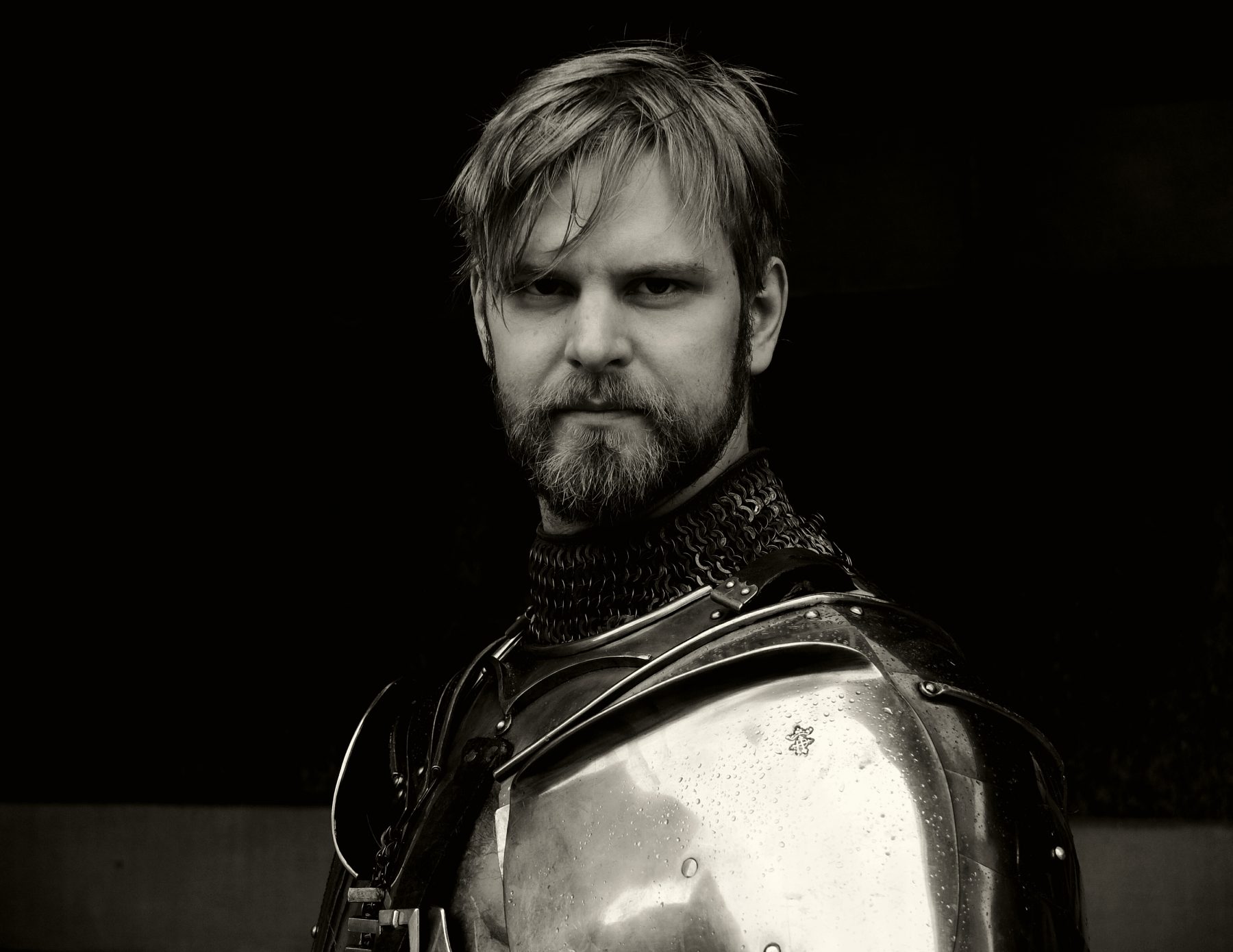
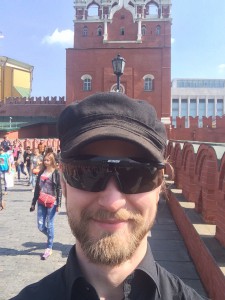
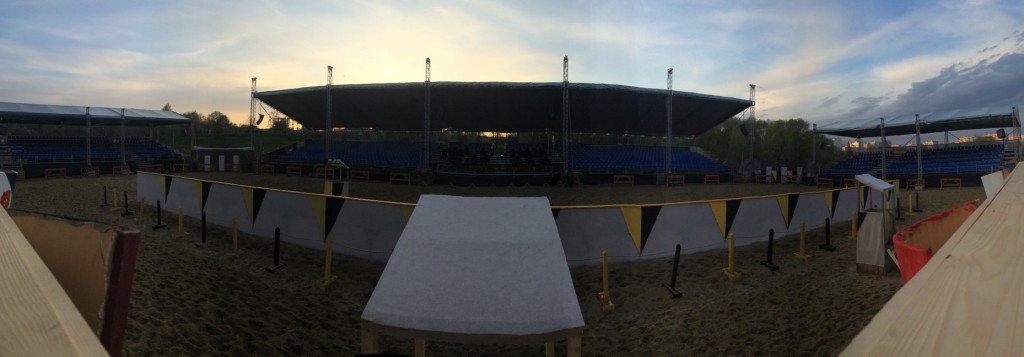
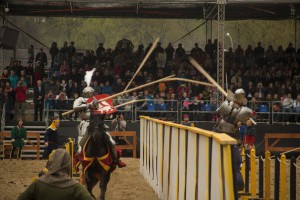
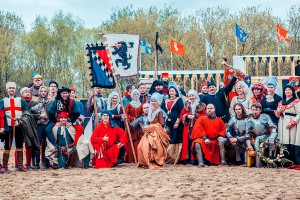
Recent Comments